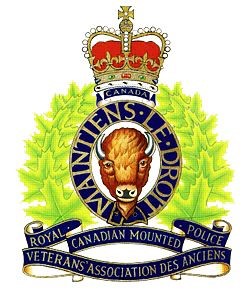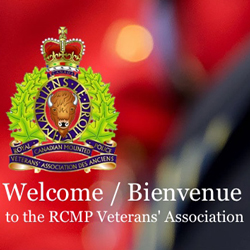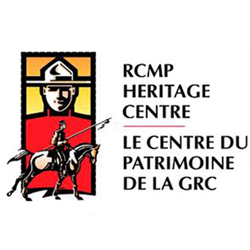Mefloquine Use as Anti-Malarial Medication for Deployed RCMP Personnel
April 5, 2021

Mefloquine – Also known as Lariam
Dear Members of the Association,
Further to the messages that are coming out about Mefloquine – Also known as Lariam.
A Class Action Lawsuit is being filed as a result of Mefloquine being prescribed to some Royal Canadian Mounted Police and Canadian Forces personnel who were to be deployed overseas.
The first message, that has just been re-sent, was originally sent to all RCMP Veterans’ Association (RCMPVA) Members on 11 December 2019. At that time, RCMPVA Directors asked the Force to send the message to all RCMP Personnel who were still serving. This first message is being repeated because of the Class Action Lawsuit.
There is an Addendum to that First Message that was sent out today (05 APRIL 2021) indicating that some of the links may be out of date – for example, Division Health Services Offices are now called Division Wellness Offices.
To find the Email Address for the Divisional Wellness Offices, check RCMP Divisional Websites for contact information, OR you can find them listed in the current Guide to Health Benefits & Services on the RCMPVA Website:
Chapter 14, Pages 36 to 39.
Here is a link to the Guide: https://rcmpva.org/advocates-en
To switch between the French & English Versions, toggle the EN/FR Button at the top right of the Page.
To request your Medical File, contact the Division Wellness Office in the Division you retired.
We do not know if all RCMP Personnel who may have been prescribed Mefloquine have been adversely affected. It is recommended that personal Medical Files be requested.
It is Strongly Recommended that RCMP Personnel concerned about being adversely affected register with the Law Firm:
Howie, Sacks & Henry, LLP
Phone: 1-877-771-7006
20 Queen St W #3500,
Toronto, ON M5H 3R3
Email: Paul Miller – pmiller@hshlawyers.com
Mike Duffy Mike Duffy
RCMP Veterans’ Association (RCMPVA)
Chief Advocate
Reg. No. 33398
Association.chiefadvocate@rcmpva.org(Email)
www.rcmpva.org (National Website)
403-381-8200 (House)
403-866-8200 (Mobile)
April 5, 2021
| Dear Members of the Association, Further to the previous message regarding Mefloquine, President Glenn has asked that the following information be provided to you to assist in your assessment of any experience you may have had with this drug. Email references in the original message may be outdated. Checking the local RCMP Division website will probably provide the necessary email address. Chief Advocate Mike Duffy is available to handle any queries you may have at email association.chiefadvocate@rcmpva.org President Glenn’s message: In December of 2019, the RCMP issued an important bulletin related to the administration of Mefloquine, also known as Lariam, an anti-malarial drug to members of the RCMP who were deployed to many parts of the world where there was a possibility of exposure to Malaria. In December of 2019 the RCMP circulated a bulletin outlining the details and the serious side effects. A Mass Tort has been placed before the courts, initiated by the family of a former Canadian Forces member, the late Brad Elms . The list of those pursuing this class action has increased from an earlier count of 200 to well over 2000. I suspect many of our former RCMP members may be suffering from the very serious side effects of Mefloquine and may wish to delve into this civil suit. Given the litigation deadline is the 31st of May, 2021, it’s important they do so soonest. I understand the Law Firm Howie Sacks and Henry LLP are representing those who are pursuing compensation. The company details are on the web and they can be reached at 877-771-7006. I urge anyone who may be effected by Mefloquine to reach out to that law firm at your earliest opportunity. Sincerely A.P. (Sandy) Glenn President, RCMP Veterans Association |
April 5, 2021
RCMP VETERANS’ ASSOCIATION

Mefloquine – Use as Anti-Malarial Medication for Deployed RCMP Personnel
This bulletin has been distributed to all Association Members.
Association Members:
If you were deployed overseas during your service with the RCMP, the following information respecting the anti-malarial medication Mefloquine (also known as Lariam) may be of interest to you.
| Association Members: If you were deployed overseas during your service with the RCMP, the following information respecting the anti-malarial medication Mefloquine (also known as Lariam) may be of interest to you. Mefloquine is one of four (4) anti-malarial medications that may have been prescribed to individuals deployed for peace operation missions in areas at a high risk for malaria. Areas at risk for malaria include: Asia, Africa, Caribbean, Middle East, South and Central America and South Pacific. In addition to mefloquine (also referred to as Lariam), three other (3) anti-malarial medication options include atovaquone-proguanil, chloroquin and doxycycline. Malaria is a serious disease that can cause death if not treated right away. Anti-malarials are prescribed based on the risk of malaria, an individualized medical assessment and in accordance with Canadian recommendations for the prevention and treatment of malaria. Individuals deployed for peace operation missions may have been prescribed, and may have taken anti-malarial medication further to this individual risk assessment. RCMP Health Services also provides mandatory pre-deployment & post-deployment medical and psychological examinations for officers going on mission. Pre-deployment examinations are conducted to confirm personnel are fit to deploy and to provide them with all immunizations and medications necessary for their mission. In select cases, such as first time use, a short monitored trial may also have been conducted as part of this assessment. Post-deployment examinations assess overall wellness of returning police officers and that they are fit to resume their regular police duties. Mefloquine is generally well tolerated however side effects have been known to occur, including nausea, headaches and insomnia. These symptoms are usually mild and resolve within a few days. There have also been reports of rare cases (1 in 10 600) of serious adverse reactions to the drug. The reported side-effects include anxiety, paranoia, depression, hallucinations and nervous system problems such as vertigo, tinnitus and seizure For those who are interested in learning more please see the safety review conducted by Health Canada, available here: Summary Safety Review – Mefloquine (2017). Health Canada’s safety review found limited evidence to support the allegation that long-lasting and permanent neurological and psychiatric adverse events are caused by the use of mefloquine. To learn about DND’s experiences, see the Surgeon General Task Force Report on Mefloquine (2017). Please note that RCMP Veterans can request and obtain a copy of their personal occupational health (medical) file directly through the divisional Occupational Health and Safety Services office, OIC of Health rather than through the formal ATIP process. Click here to access a contact list of RCMP Division Headquarters Offices. RCMP Health Services provided additional detail respecting the protocol and policy RCMP has followed respecting the prescription of anti-malarial medications including mefloquine. Click here to learn more. |
|
|


 April 6, 2021
April 6, 2021 






